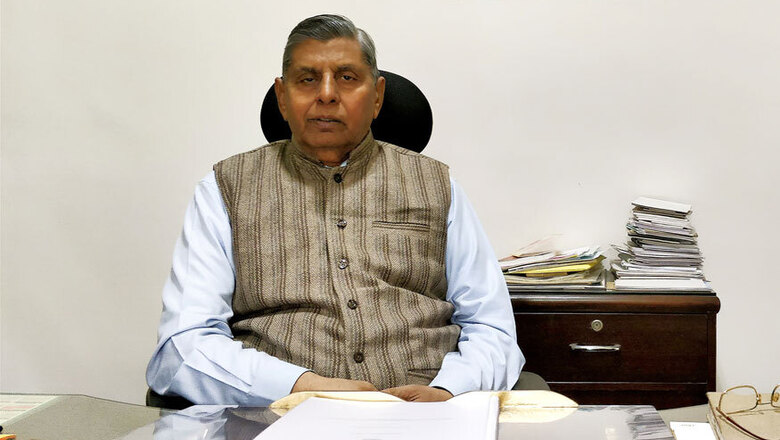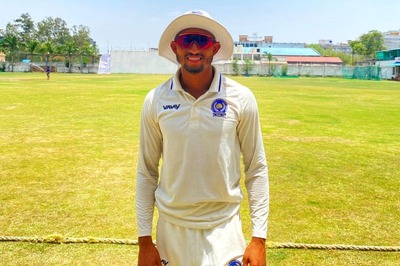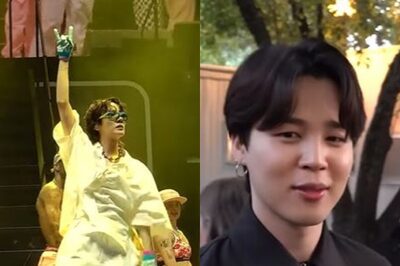
views
New Delhi: The government has recently drafted a bill, The Muslim Women (Protection) Rights on Marriage Act, 2017, which seeks to provide a three year jail term to a husband who is guilty of pronouncing instant triple talaq.
However, in an interview to News18.com, apart from dismissing any possibility of an Uniform Civil Code, the chairman of the 21st Law Commission of India, Justice Balbir Singh Chauhan has called for a review of the drafted triple talaq bill as “a husband would not want to keep the wife in case of a three year jail term penalty.”
In a freewheeling conversation, Justice Chauhan unequivocally stated that secularism is by no means about “forcing people to say Bharat Mata Ki Jai or Jai Hind.”
Excerpts from the Interview:
As we speak, members of some specific Muslim organisations have expressed relief with the triple talaq verdict stating that the judgment protects personal laws under Article 25. If that be the case, how do you see the Uniform Civil Code shaping without disturbing the personal laws?
Unfortunately, the point has not been touched by the Supreme Court. I was expecting that they would discuss what Uniform Civil Code is and how it would be dealt it. Even if they do not set guidelines, at least they could have said that time has come for the UCC and it is needed for the national unity. But there was no such thing from the court. SC did not even refer to Article 244 of the Constitution. The apex court decided on the law but a public atmosphere was created and public opinion was generated by debate that triple talaq is something not good for the woman and must not be there. That kind of debate needs to happen around UCC too but that did not happen.
Now even the Parsi Marriage Law has been challenged. Will the commission develop UCC on the lines of these verdicts?
Parsi Marriage Law has been challenged and the entire procedure is itself very complex. It cannot be an integral part of the religion that only the chief justice will separate you. Is it not a discrimination that in all other religion it’s the family court taking the call and here the CJI takes a call? These call for a change when the SC will hear the case and I don’t think anyone will oppose it being struck down too. If SC decides this matter, then we have nothing to touch on the Parsi marriage law. We will not touch the Muslim divorce law as SC has decided on it. Now the government is coming up with a bill imposing three years jail term on a husband resorting to instant divorce but it should not be so harsh.
But a penalty is needed to stop the practice of triple talaq?
If you send someone to jail for three years, then he would not keep that wife. There must be review, reconsideration on this aspect and a clarification be issued. Regarding penalty there is no need for a provision as it comes under domestic violence. When SC has struck down the practice, triple talaq becomes void ab initio and hence does not exist. There is no recognition to it anymore. This law may be only for deterrence. Nonetheless the proposed law will provide a safety valve and a legal procedure.
So when is the country going to receive the UCC from the Commission?
UCC is not possible. UCC is not a solution and there cannot be a composite act. We will try to recommend amendments in family laws religion wise. It would be the piecemeal way to suggest what are the changes required in Hindu law, Muslim law, Christian law, Parsi law.
You mean there will be no Uniform Civil Code?
UCC is not a solution. I realised this after going through all documents. Look at how many exemptions have been granted under the Constitution. You cannot say forget about the Constitution and do away with the VIth Schedule.
UCC is not possible. We will target what are the problems of each religion and deal with them accordingly. You cannot take the whole UCC as we cannot go outside the Constitution. The Constitution itself has given so many exemptions to so many people like the tribals, etc. There are exemptions even in Civil Procedure Code and Criminal Procedure Code. So we cannot violate the Constitution or recommend that first delete the VIth Schedule etc. Personal laws are part of the Constitution under Article 25 and can never be struck down.
It’s the 25th anniversary of the Babri-Ramjanmabhoomi dispute today. The Liberhan Commission has recommended the promulgation of a legislation to deal a blow to communal riots and violence. A bill was proposed too, The Communal Violence (Prevention, Control and Rehabilitation of Victims) Bill the access to justice and reparations part of it, all of it has remained on paper. Since then riots after riots have rocked the country. Do you think there is a need for a law to put an end to this?
If you introduce the bill in Parliament and Parliament is dissolved, then the bill automatically lapses too. Somebody has to revive and re-introduce the bill. But there is no need to revive or reintroduce the communal violence bill because even now Supreme Court keeps issuing orders to compensate those who lost their property, etc. But now introducing the bill will have political issues attached.
The basic thing is, who is the political party in power and what do they want. It’s not the act. There are many acts like the Child Marriage Restraint Act, 1929 and was replaced in 2006, but nothing happens even after 90 years. Even today child marriage rate is above 46% and only awareness can solve this problem. Look at the Land Acquisition Act, 1954. Whatever atrocities have been there by the state, no court ever protected the farmers. Farmers have never been given any protection by the courts in Land Acquisition Act. Things only changed after the new enactment of the Land Acquisition Act in 2013.
How do you define secularism? With the country waiting for UCC it’s imperative to understand the true meaning of being secular.
Secularism does not mean ‘Dharm Nirpeksh’. It means ‘Pant Nirpeksh.’ We respect every religion but we will not prefer any religion over the other. Whatever is your religion, it is your personal right, and you exercise it. But we will not give preference to any other religion to yours. State needs to be neutral towards religious matters. You can never force a party to say ‘Bharat Mata Ki Jai’ or slogans. Refusing to chant a slogan is not sedition or disrespect. Right to silence is a right and is also a right under criminal law under Article 20 and 22 of the Constitution.
Why is there an increasing feeling among the executive that the judiciary is interfering in matters where it’s not supposed to. Is such a feeling viable? Are there limits prescribed for judicial interference in any matter especially the SC?
There are limits prescribed for judicial interference in the country. There are cases of judicial overreach and the court cannot run the government. Governance is not their job. It is not the job of the court to check air pollution but what to do? What solution does the court have? Bring CNG, then bring odd-even, but would that suffice for long? This tussle of judiciary getting into the executive zone and vice versa is happening but will reduce as people speak up more. Judges do take note of these and they themselves lower down their interference in such matters.
Recently the Delhi HC requested you to examine the possibility of a legislation for providing relief and rehabilitation to victims of wrongful prosecution and incarceration in India. How far do you think is such a law needed?
If the High Court has asked us, we will have to give a reply and we will. But I think our proposed bill, Prevention of Torture Bill that was proposed by us a few weeks ago has specific provisions dealing with the relief and rehabilitation to victims of wrongful prosecution and incarceration in India. But we will have to see whether some of the provisions needs to be reworked or amended.
You recently expressed shock at a judge serving for 21 years without a degree and being a fake. How do we stop the “indiscriminate recognition to substandard law institutions, law degrees from ghost universities” as pointed out by you? Is a law on the anvil?
Verification needs to be done at the time of enrollment. He has two years’ academic degree and could not register himself as an advocate. Bar Council of India (BCI) did not find this fault and at a later stage when he applied to become a judge, the HC should have asked for his degree but even then it was not done. He retired but not caught.
It was shocking because I know there will be more such cases. Many advocates have degrees from law schools which do not even exist. Even BCI has said that there are 30% such lawyers. We have addressed this issue in our Law Commission report on advocates’ act where we have noted that when judicial officers go on strike then this entire ground to increase the number of judges is not needed. If these judges are not working, why pay them?



















Comments
0 comment